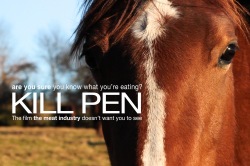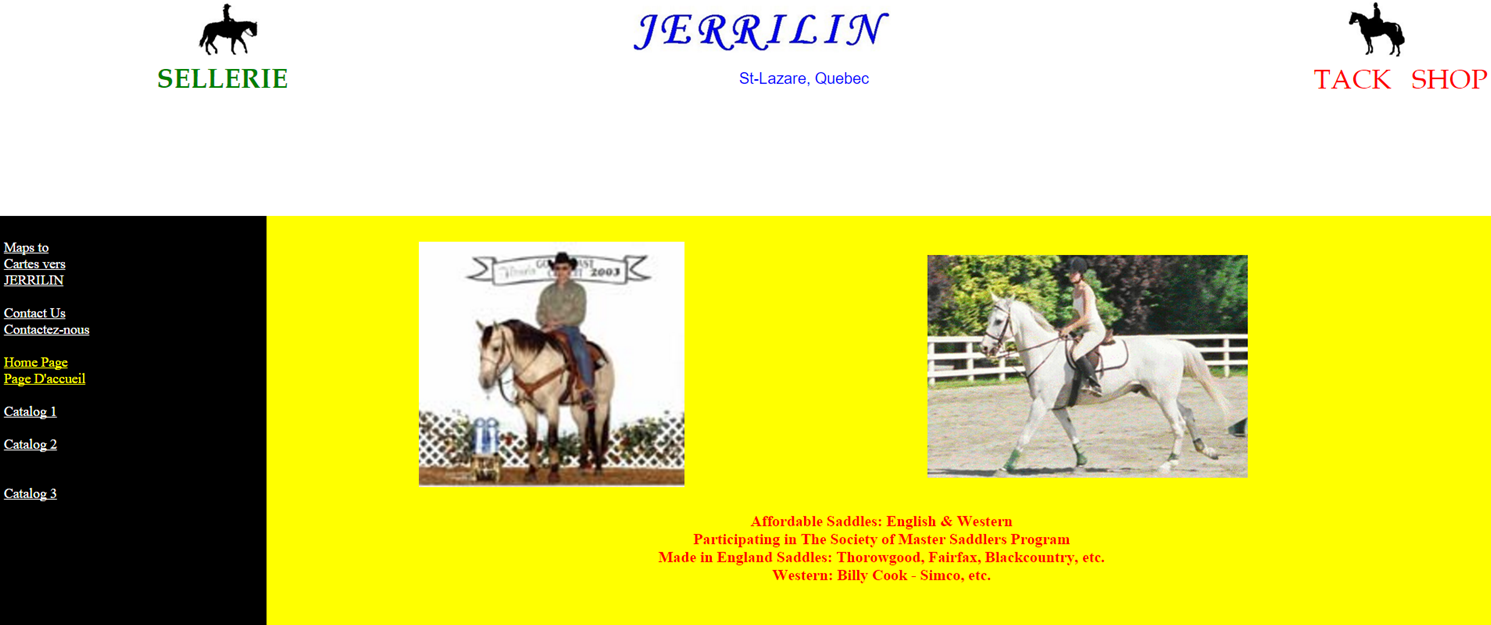The CHDC is releasing 2014 data (to November) from Agriculture and Agri-Food Canada on horse slaughter including live U.S. imports, live exports to Japan for slaughter, and horsemeat exports by country. Continue reading for our analysis of the data, and what you can do to speak out for the horses.
Horses to Slaughter in Canada

Robust, healthy horses awaiting slaughter at Bouvry Exports – photo courtesy Tierschutzbund & Animals’ Angels
Total number of horses to slaughter in Canada to November 2014 is 61,209, down 6.9% from 65,428 in November 2013.
Overall, the number of horses to slaughter continue to decline since the highest year in 2008 when the number totalled 113,064. That year saw a dramatic increase due to the closure of all U.S. plants in 2007.
The number of imported U.S. horses for slaughter to November 2014 is 37,422, or 61% of all horses slaughtered in Canada to November. In 2013, 42,130 horses were imported from the U.S. for slaughter in Canada; 59% of the 71,961 total. The previous year was higher with 68% of horses from the U.S.
Live Exports for Slaughter
Japan has increased their live exports by 286% for 2012 over 2013, and up another 11% to November 2014. The number of horses was 1179 in 2012, then 6635 horses in 2013 – up 562%. To November 2014, it’s 6,976, up another 5% over 2013. Japan is the only country that live ships horses for slaughter from Canada. (The UK is noted as shipping one horse in 2014).
Horse Meat Exports
For total Canadian horse meat exports, the latest figures show the total amount to be $72.8 million as of November, and the estimated amount for the entire year will be just under $80 million. The total for 2013 was $80.5 million. AAFC also reports that horse meat exports quantities total 12.4 million kilograms to November 2014, closing in on the 14.5 million kilograms reported in 2013. A separate table from AAFC, broken down by horse meat cuts, shows Japan with 2.0 million kilograms, Kazakhstan with 1.8 million kilograms, then France with 1.6 million, followed by Belgium, Switzerland and Finland with 1.0 million, 0.95 million and 0.2 million respectively. For boneless cuts, Kazakhstan leads, followed by Japan, Belgium and France.
Japan was #2 for horsemeat exports for 2013 and has moved up to #1 in 2014 (to November).
Switzerland, who in recent years was consistently at the top on the list, has moved down to #3 in 2014. We expect that supermarket chain Migros’ decision to stop the sale of horse meat from Alberta based Bouvry Exports (due to animal welfare issues) has affected this change.
The same 6 countries remain in the top 6 spots for horse meat exports in 2013 and 14. Their positions have changed year over year: 1. Japan (non EU – was 2. In 2013); 2. France (3. In 2013); 3. Switzerland (non EU – was 1. In 2013); 4. Belgium (4. In 2013); Kazakhstan (non EU – 5. In 2013); and 6. USA (6. In 2013).
Countries with increased imports include Spain, Italy, Lithuania, Vietnam, and Macao. Countries with less imports include Netherlands, Finland, and Egypt.
What You Can Do
Reading these statistics, it’s difficult to fathom all the individual lives that were taken violently in Canada’s 5 slaughter plants. Here’s how you can voice your concern.
Japan has become Canada’s #1 country for horse meat exports, as well is the only country shipping live horses for slaughter, with alarming increased shipments in recent years. The CHDC has reported several times on live shipments of horses out of Calgary International Airport. Find our videos on Youtube. Find our blog postings on live shipments to Japan here.
At this time we are providing contact information for raising awareness about our new #1 business partner for horses and horsemeat – Japan. Please find below links to government and animal welfare agencies in Japan. As well, you can reach our Canadian government through the links provided.
Who to contact in Japan:
Japan Ministry of the Environment
Ministry of the Environment Government of Japan
Godochosha No. 5, 1-2-2 Kasumigaseki, Chiyoda-ku, Tokyo 100-8975, Japan
Tel: +81-(0)3-3581-3351
Japan Ministry of Agriculture, Forestry and Fisheries
Prime Minister of Japan and His Cabinet
The Japanese Coalition for Animal Welfare
In Japan, the Act on Welfare and Management of Animals (Act No. 105 of October 1, 1973) (amended in 1999 and 2005) stipulates that “no person shall kill, injure, or inflict cruelty to animals without due course”, and in particular, criminalises cruelty to all mammals, birds, and reptiles possessed by persons; as well as cattle, horses, goats, sheep, pigs, dogs, cats, pigeons, domestic rabbits, chickens, and domestic ducks regardless of whether they are in captivity.
Also, please contact Japan’s Ambassador to Canada:
http://www.ca.emb-japan.go.jp/
In Canada contact:
Hon. Rona Ambrose, Minister of Health (Minister responsible for the CFIA)
Email: rona.ambrose@parl.gc.ca
Web: http://ronaambrose.com/?page_id=12
Tel: 613.996.9778; Fax: 613.996.0785
Dr. Bruce Archibald, President, Canadian Food Inspection Agency
1400 Merivale Rd., Tower 1, Floor 6, Ottawa, ON K1A 0Y9
Email: Bruce.Archibald@inspection.gc.ca
Web
Tel: 613.773.6000; Fax: 613.773.6060
Dr. Harpreet Kochhar Chief Veterinary Officer for Canada, CFIA
Email: Harpreet.Kochhar@inspection.gc.ca
Web
Tel: 613.773.7472; Fax 613.228.6637
Dr. Martine Dubuc, Chief Food Safety Officer, CFIA
Email: Martine.Dubuc@inspection.gc.ca
Web
Tel: 613.773.5722; Fax 613.773.5797
Hon. Gerry Ritz, Minister of Agriculture and Agri-Food
Email: Ritz.G@parl.gc.ca
Web
Tel: 613.995.7080; Fax: 613.996.8472















[…] in Canada for 2014 was 66,651. Of those, 40,140 or 60% were from the US. Please see our previous posting for a more thorough […]
I feel bad for mistreated individuals. People that are killed or starved. I’m sure everybody that comments is familiar with domestic livestock. I have eaten horse meat. It is quite tasty, I have also sat with horses that died of old age. Get off your high “horse for humanity” and be realistic. There is a problem of to many horses, like dogs or cats. This is an optional solution. It is easy to judge from the comfort of your living room.
Reblogged this on "OUR WORLD".
Reblogged this on Equine Preservation of North America -EPONA.
With now 5 horse plants operating it clearly shows there is an over market production of horsemeat consumers. Surely Canada has sold out the horse for profits. There is nothing humane about this whole process. We will continue to work to get these plants shut down on this end.. Thank you CHDC for all you do..
This is absolutely horrific ! This entire industry has to be shut down ! How can these counties be so cruel ! It makes me sick to my stomach.All for the almighty dollar again the animals suffer.
It’s just horrifying that people actually eat horse meat. As a horse owner and a horse health care provider I am shocked that Pete are not better educated about the health hazards of eating a domestic horse. I have over the course of 50 yrs had to treat my horses with such drugs and substances that are completely dangerous if consumed by humans. Cancer causing agents. I assure you those horses are not fit for human consumption. Has anyone ever met a horse trader or a kill buyer that had one once of decency in them? They couldn’t tell the truth if their lives depended on it. They don’t know the medical history of these domestic horses. Foreigners need to smarten up! What they are eating is going to come back to bite them in the butt. Science is a wonderful thing! If they don’t listen to the science and continue eating horse meat they shall pay the price.
I WILL NEVER STOP FIGHTING FOR ALL HORSE EXPORTS FOR SLAUGHTER TO STOP!!!
You are on the right track. Reach me on FB or email classeter@lcisd.org to tell me how to get involved. I live in Texas.
We need a new government, one which does not allow such abhorrent practices. Unfortunately the opposition parties are noticeably silent!!!!
i don’t know why and i don’t understand how anyone,could hurt or want to sell these horses to be slaughtered,,,all i have is just my voice to try to help,,,but i am, gonna do the best i can,,,and contact anyone with any type of governmental staus to help,,
I DIDN’T KNOW CANADA EXPORTED HORSEMEAT.
.I am ashamed and horrified.This has got to STOP.
stop the killings of horses
What gets me is the countries that don’t belong to the EU are importing adulterated horse meat from US horses that are slaughtered in Canada. They must know about the drugs and don’t care because of the money they make. I wonder when the EU is going to crack down on Canada like they did on Mexico? It looks like the kill buyers from the US will still have a market in Canada regardless of what the EU eventually does. It may not include the large numbers of horses from the US but the slaughter will continue it looks like.
they cracke down in mexico because of the cruel treatment of the horses ,they saw. they also saw the cruel practice of knifing the horses before slaughter ( where they stick the on both sides to tenderize them ) and letting them stand like that for days. they were taking any and all horses sick ones , horses w/broken limbs , and stolen horses. 3 out 5 that were tested were loaded with drugs. any way the whole practice is sick and it should have been stopped a long time ago.
Noting here that the horsemeat exports for 2014 is almost $80 million, but with the high increase in live exports to Japan for slaughter, that is an additional $20 million, making the entire business worth almost $100 million now. Exported horsemeat has been going down steadily since 2011, but live exports shot up 560% 2013 over 2012, and it’s up another 5.2% 2014 over 2013. Alarming numbers all around, but especially for the live exports, knowing the method by which they’re shipped – over 24 hours with 3 to 4 horses per crate.